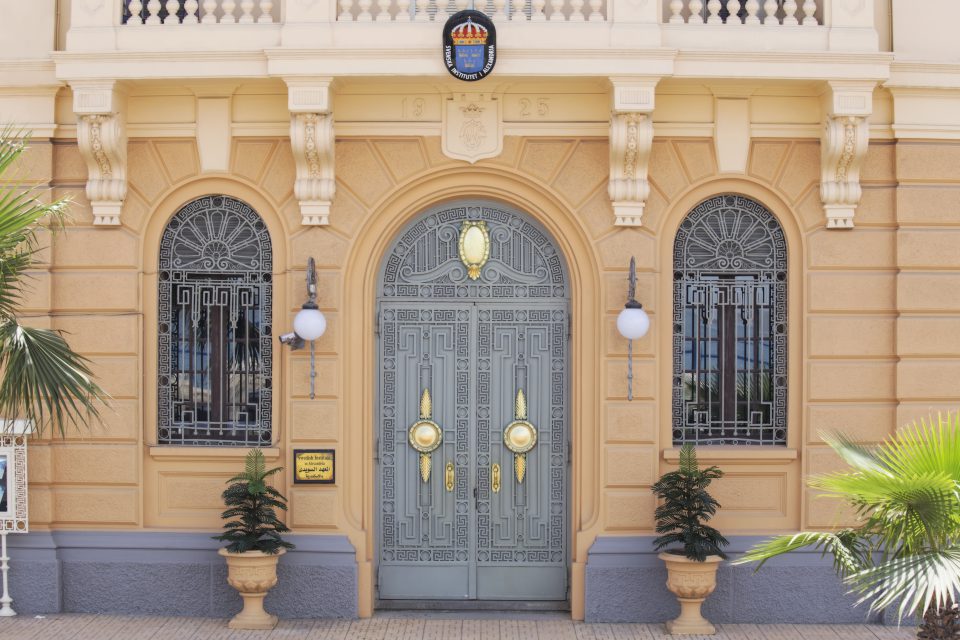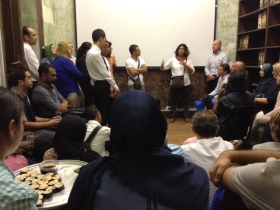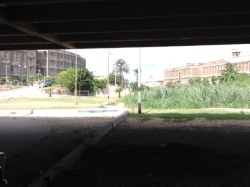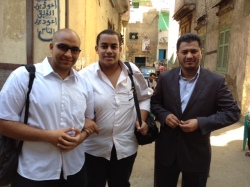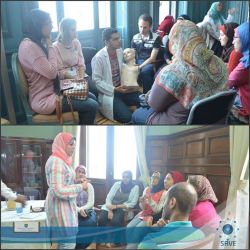The idea of considering our own culture and identity superior to others is not unique neither in the Middle East nor Europe. We have too many examples both from history and today when such cultural provincialism has turned into phobia, discrimination or hatred.
The second seminar organized by the Swedish Institute in Alexandria during the political week in Almedalen 2016 focused on islamophobia and antisemitism in both Europe and the Middle East – differences and similarities.
The panel had two Jewish representatives – one from Israel and one from Sweden. Shmuel Aiello from Interfaith Encounter Association in Israel and Peter Vig from the Jewish Congregation and Midor Ledor in Malmö. The two Muslim representatives were Adrian Kaba, active in the Muslim Congregation in Malmö and the Religious Social Democrats of Sweden and Farah Maiza, from Tunisia and France, vice President of the Co-Exister.
Antisemitism in Europe has deep historical and ideological roots in Europe with the Holocaust as the culmination. Many would describe the Holocaust as a turning point, never again would a European country accept organized antisemitism.
But if situation improved in Europe after World War II, it has gone the other way in parts of the Middle East. Many countries of the Middle East had large Jewish communities before the beginning of the Arab-Israeli conflict, but the numbers continue to go down.
The city of Alexandria, being one of the most obvious examples, had 45.000 Jews 65 years ago. Today the number is down below 20. Shmuel did not agree that the Arab-Israeli conflict is the only reason for the decline, but Jewish presence in the Middle East, outside Israel, has reached a point when it probably will be impossible to rebuild again.
The city of Malmö has been described at the city in Sweden with most conflict between Muslims and Jews. This challenged Peter Vig and Adrian Kaba to involve themselves and other members of the Jewish and Muslims congregations in dialogue three years ago.
They agreed not to talk about the issue the two communities had strong disagreement about – the Arab-Israeli conflict, but rather focus on what they had in common and difficulties they both felt being religious minorities in Sweden.
It turned out that the two issues which both communities gave priority in protecting their right to Freedom of Religion were the right to religious slaughter (Kosher and Halal), which is not allowed in Sweden, and to ensure the right to circumcision of boys, which is allowed, but regularly challenged in different political contexts.
The dialogue has helped both communities to identify with the other. When some Muslim traditions were challenged in media and political assemblies this spring for not being Swedish enough, Jewish members could see that another time the lower tolerance could as well be against them.
In order to protect their rights or to improve Freedom of Religion for minorities, it is more effective when majorities speak out together and raise the concerns out of principles, compared to when each one is only talking for their own needs or rights.
Peter and Adrian also shared that they believe that the Arab-Israeli conflict can be on their table for dialogue in the future. Once trust is created, more difficult issues can be discussed.
The French based organization Co-Exister is bringing together youth from different faith background, but also Atheists, to dialogue on what co-existence mean today.
The secular state – the need to separate state and religion – was developed in Europe to protect the state from religion, inspired by the French revolution and interpreted stricter in France than in other European countries. There is a ban on religious symbols in all public schools and for government officials. If these restrictions would be further increased, e.g. in all public places, it would directly target in particular the Muslim and Jewish communities.
In US the separation between state and religion was done for the opposite reason – to protect religions from the state. Both concepts have served their purposes, but also shown shortcomings from the other perspectives. Hence a dialogue on different perspectives on secular state is called for.
Provincialism – putting your own culture as superior to others – is a growing plague in both Europe and the Middle East. It is partly a counter reaction to globalization of economy, migration, new technology etc. Old borders are becoming irrelevant and people are looking for new borders.
One expression of this desperate quest for new borders, which was strongly discussed in the political week in Almedalen 2016, is Brexit.
It was clear that it was men more than women, rural more than urban, less educated more than well-educated and old more than young who voted for isolation and wishing to go back to something that is already gone. This is the same pattern for the development of the far right in Swedish politics or in any European country.
It was also the same pattern in the referendum on banning minarets in Switzerland some years ago. Cantons with experiences of Muslim communities had no problem with minarets. But rural Alp-Cantons, where no one can foresee any creation of minarets for the next few hundred years, had such strong opposition that it formed a national majority.
If this observation is right, there is hope. The presently young will grow older and new, even more open minded, will come. And with education, urbanization and increased gender awareness, many problems will gradually be solved by themselves.
But Brexit also tells us another big dilemma. Only about one third of the young people actually voted. The young people in the UK gave walk over and let the closed minded form the majority and decide the future of the young.
The fact that young generations are less committed to the institutions, less involved in political parties, less responsible in political activities is a serious indication.
And one reason why the Swedish Institute Alexandria this year brought in particular young people from the region to Almedalen, showing examples of new creation of needed institutions.
